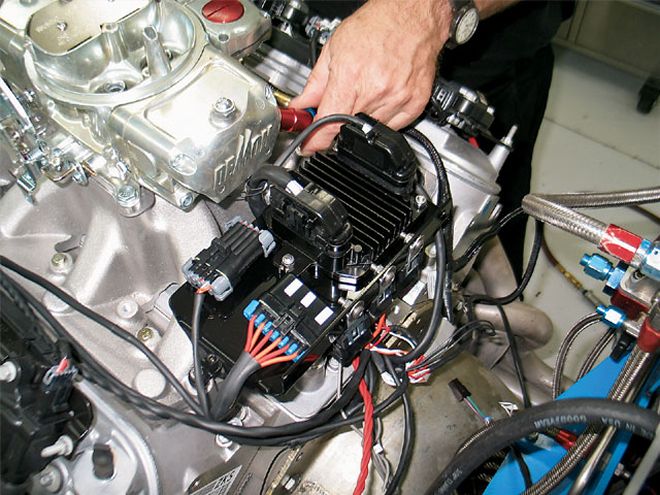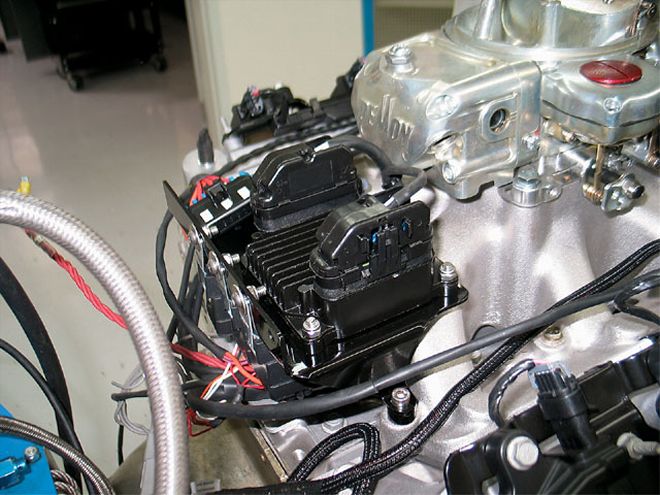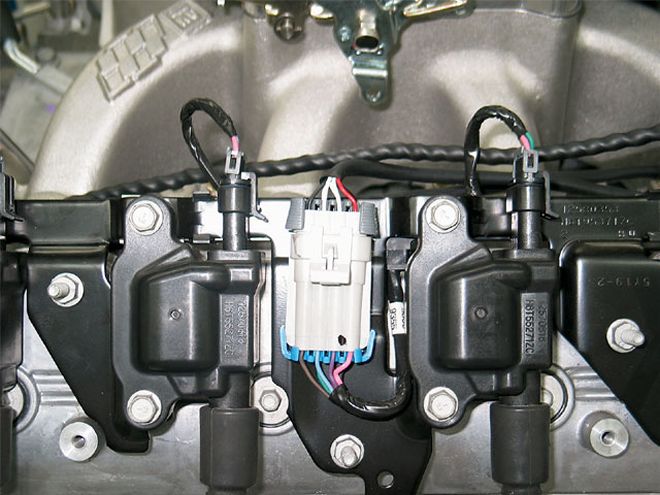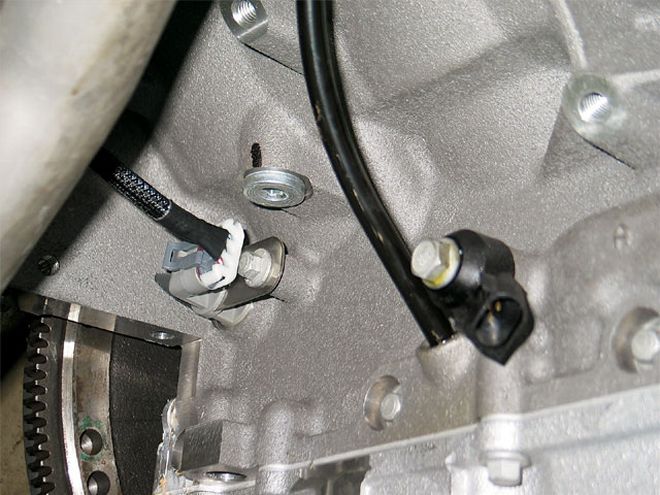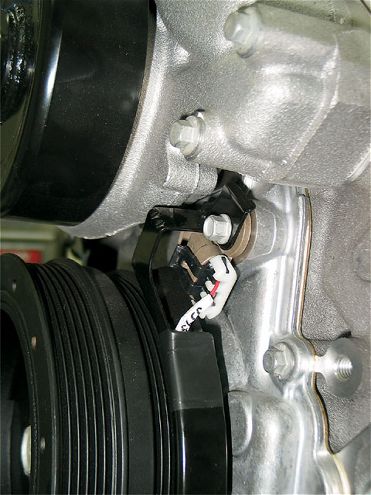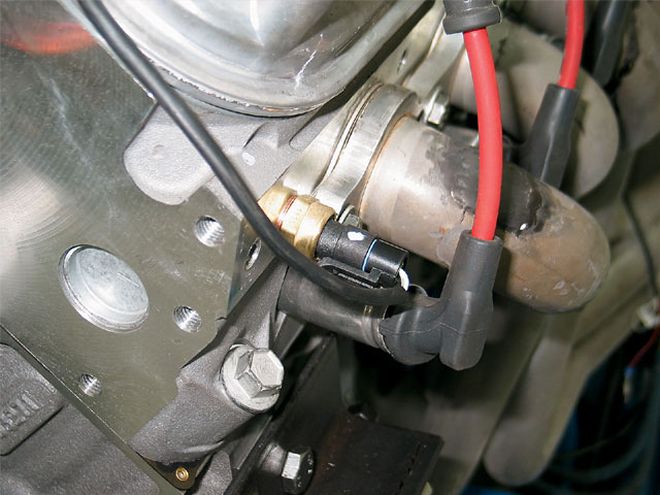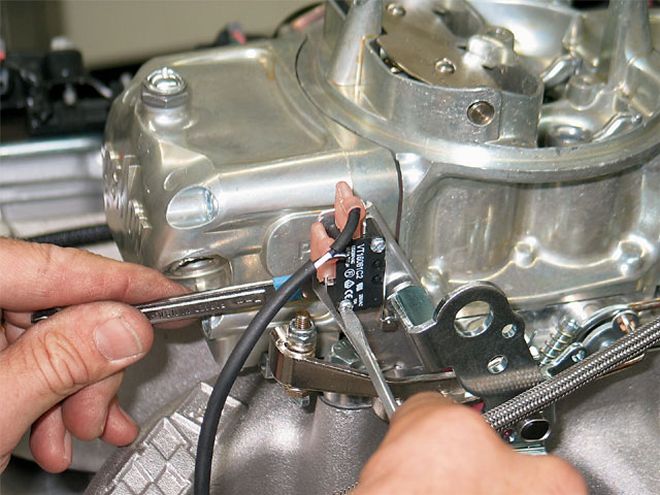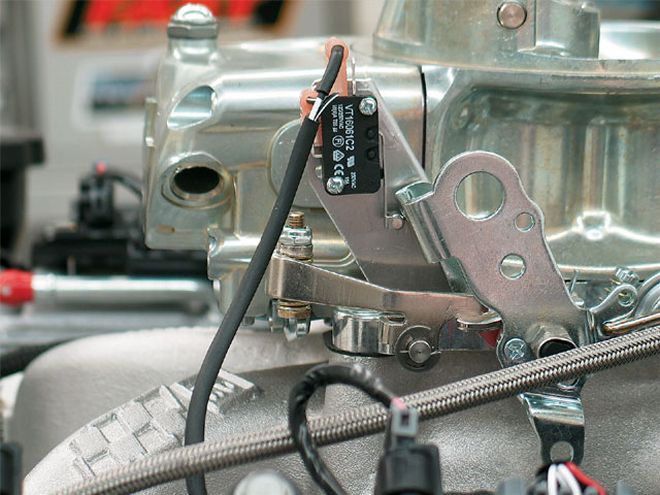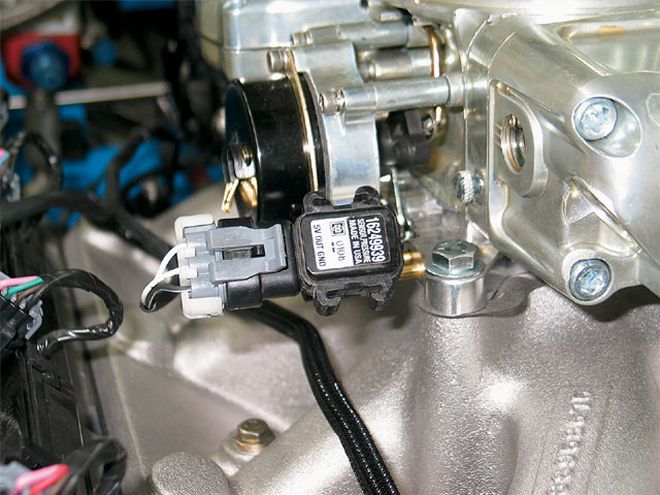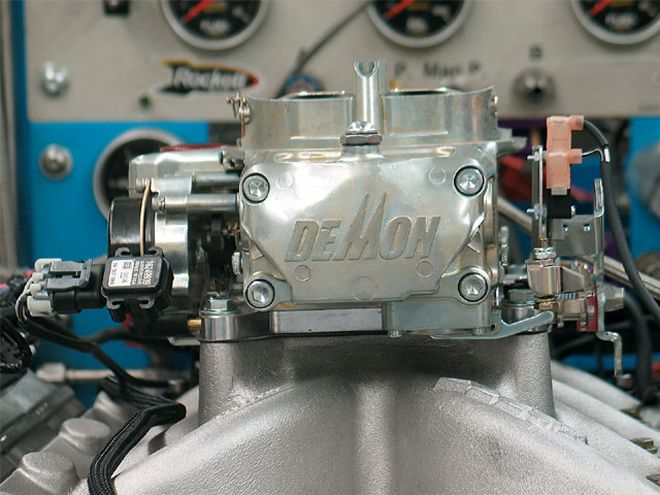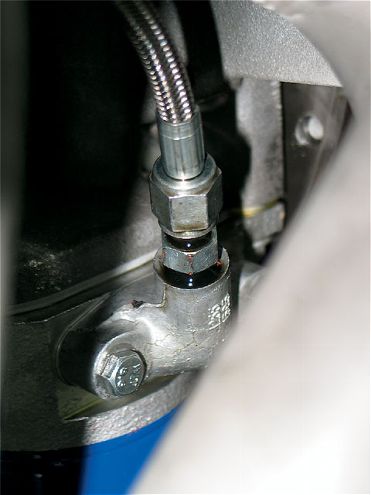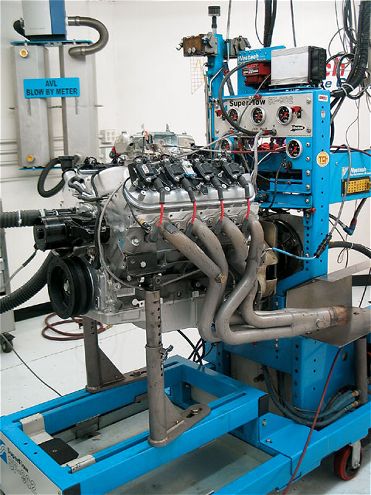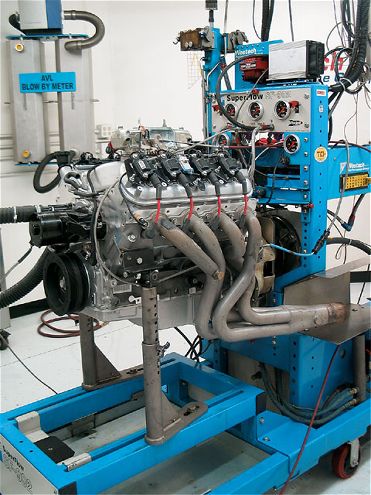
| chevrolet Ls2 Engine motor
Why would anyone take a fantastic cache of modern technology like the LS-series small-block Chevy V-8 and ditch the fuel-injection system in favor of a carburetor? Is it to achieve a nostalgic old-school look by topping the all-aluminum mill with a four-barrel fuel-metering device? No, because the carburetor is still surrounded by rounded valve covers topped with ignition coils for each spark plug. The coil-on-plug arrangement instantly squashes any semblance of old school. Is placing the carb atop a dual-plane manifold done in the name of fuel economy? Of course not. Everyone knows that a properly tuned EFI system will make a night-and-day difference in terms of efficiency when compared to a carb. Then, why do it? The answer is simple. We love carburetors.
Carbs kick ass for those of us who aren't versed in EFI tuning. They are simple to work on, and you don't need an engineering degree to fix them when something goes wrong. Carburetors look cool and invoke an air of performance. Yeah, yeah, we know that a properly tuned fuel-injection system will offer better driveability than an ill-tuned carb, but the keywords there are properly and tuned. Give most dudes a laptop and a wideband O2 meter, then tell them to give your contemporary small-block a tune-up and most will cry like little girls. That's why we love carburetors. Give us a four-barrel and a couple of screwdrivers, and we can get most any pushrod V-8 engine running well enough to smoke the tires.
Today's trucks are all about fuel injection, though, and you won't find a carburetor in any new truck dealership service bay. It's sad but true. All of the best new motors are fuel-injected. All of that technology has improved the fuel economy of our trucks, but at the same time, it's leaped past the skill set most of us possess.
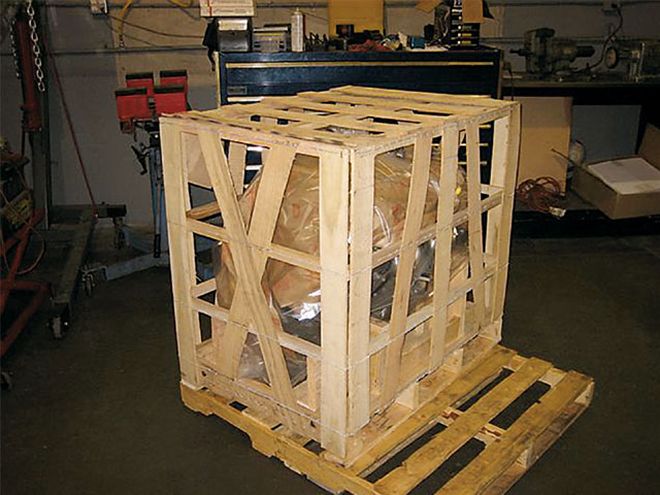
| In true crate motor fashion, our LS engine arrived at the shop, strapped to a pallet and surrounded by wood and plastic. It was like Christmas without the tree, as we pried open the crate with a crowbar.
For example, we are in the midst of a torrid love affair with Chevy's LS-series of small-block engines, because they have enough grunt to make driving a new Silverado exciting and still get fuel economy you can measure in the high teens. We'd love to stuff an all-aluminum LS engine into one of our older project trucks, but that fuel-injection system isn't too appealing to those of us who aren't computer geeks.
For a while, we thought the LS engine would be relegated to new truck status or to those with an engineering degree who could tune one after dropping it into their truck. The good people at GM Performance Parts are smart enough to know what the public wants, though, so they released a new version of the LS2 that not only has almost as much horsepower as a new Corvette, but you can run with a carburetor. It sounds almost too good to be true-a carbureted, high-power, lightweight aluminum small-block that we can easily drop into our truck and tune? On some levels, it is too good.
This motor is the real deal, and yes, you can buy and install one into your project truck. However, there are a few hiccups that you'll have to overcome, and lucky for you, we've already experienced and solved them for you. The first hurdle will be finding an ignition system to light off the coil-near-plug system of the LS2. Although a carburetor simplifies the fuel delivery system, GM uses a reluctor wheel on the crankshaft rather than a conventional distributor to tell the ignition system when to fire. Unfortunately, this means you'll need a computer to make this engine run-you didn't think a modern engine like this would run without one, did you? The good news is that UMI Racing has the right part, and it plugs right into the engine and is super easy to set up. Firing up the engine is as easy as bolting on the carburetor, bolting the computer to the intake manifold of the engine, plugging in the wiring harness, and connecting a few power and ground wires.
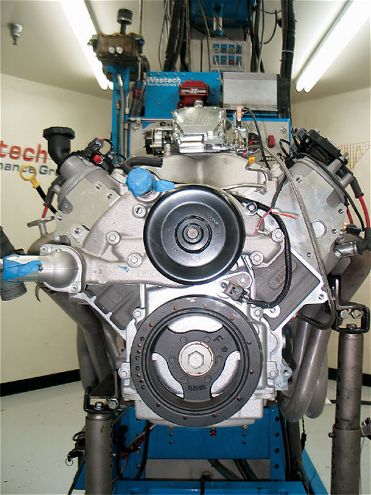
| chevrolet Ls2 Engine dyno Tuning
Part Two: Dyno Tuning
Rather than drop the small-block into our project truck and attempt to tune it by reading the spark plugs, we opted to transport the LS2 to Westech Performance Group in Mira Loma, California, for a dyno-tuning session. One of the many benefits of doing so is that Westech stocks a full array of BG carburetors, and our testing revealed that our initial pick of a 650-cfm Road Demon carb was a bit undersized. Westech had a 750-cfm Race Demon carb in stock, and we swapped it onto the motor to straighten out the fuel curve and improve power output across the board.
The Final WordThis is a killer engine for any project truck. Our dyno-tuning session found that GMPP has once again underrated its crate motor, because this thing produced 480 hp at 6,000 rpm. Peak torque occurs at 4,900 rpm with 453 lb-ft of torque measured at the flywheel. The really exciting number happens at just 2,500 rpm, though; the LS2 makes a whopping 400 lb-ft of torque, right down where we'd be cruising at. If you are considering swapping a cast-iron big-block into your ride, you might want to also know that this small-block weighs approximately 200 pounds less, which translates into fewer pounds out of the nose of the truck and a better front and rear bias. This means better handling, with power rivaling most big-blocks.
Since our dyno test, we have installed this LS2 into our '67 Chevy C10 project and are happy to report that the motor only needed five wires connected to make it run in our truck after leaving the dyno. We'll report back on how the truck drives and what else is needed to get the power to the rear wheels in an upcoming issue of ST.
 | chevrolet Ls2 Engine motor
Why would anyone take a fantastic cache of modern technology like the LS-series small-block Chevy V-8 and ditch the fuel-injection system in favor of a carburetor? Is it to achieve a nostalgic old-school look by topping the all-aluminum mill with a four-barrel fuel-metering device? No, because the carburetor is still surrounded by rounded valve covers topped with ignition coils for each spark plug. The coil-on-plug arrangement instantly squashes any semblance of old school. Is placing the carb atop a dual-plane manifold done in the name of fuel economy? Of course not. Everyone knows that a properly tuned EFI system will make a night-and-day difference in terms of efficiency when compared to a carb. Then, why do it? The answer is simple. We love carburetors.
Carbs kick ass for those of us who aren't versed in EFI tuning. They are simple to work on, and you don't need an engineering degree to fix them when something goes wrong. Carburetors look cool and invoke an air of performance. Yeah, yeah, we know that a properly tuned fuel-injection system will offer better driveability than an ill-tuned carb, but the keywords there are properly and tuned. Give most dudes a laptop and a wideband O2 meter, then tell them to give your contemporary small-block a tune-up and most will cry like little girls. That's why we love carburetors. Give us a four-barrel and a couple of screwdrivers, and we can get most any pushrod V-8 engine running well enough to smoke the tires.
Today's trucks are all about fuel injection, though, and you won't find a carburetor in any new truck dealership service bay. It's sad but true. All of the best new motors are fuel-injected. All of that technology has improved the fuel economy of our trucks, but at the same time, it's leaped past the skill set most of us possess.
| chevrolet Ls2 Engine motor
Why would anyone take a fantastic cache of modern technology like the LS-series small-block Chevy V-8 and ditch the fuel-injection system in favor of a carburetor? Is it to achieve a nostalgic old-school look by topping the all-aluminum mill with a four-barrel fuel-metering device? No, because the carburetor is still surrounded by rounded valve covers topped with ignition coils for each spark plug. The coil-on-plug arrangement instantly squashes any semblance of old school. Is placing the carb atop a dual-plane manifold done in the name of fuel economy? Of course not. Everyone knows that a properly tuned EFI system will make a night-and-day difference in terms of efficiency when compared to a carb. Then, why do it? The answer is simple. We love carburetors.
Carbs kick ass for those of us who aren't versed in EFI tuning. They are simple to work on, and you don't need an engineering degree to fix them when something goes wrong. Carburetors look cool and invoke an air of performance. Yeah, yeah, we know that a properly tuned fuel-injection system will offer better driveability than an ill-tuned carb, but the keywords there are properly and tuned. Give most dudes a laptop and a wideband O2 meter, then tell them to give your contemporary small-block a tune-up and most will cry like little girls. That's why we love carburetors. Give us a four-barrel and a couple of screwdrivers, and we can get most any pushrod V-8 engine running well enough to smoke the tires.
Today's trucks are all about fuel injection, though, and you won't find a carburetor in any new truck dealership service bay. It's sad but true. All of the best new motors are fuel-injected. All of that technology has improved the fuel economy of our trucks, but at the same time, it's leaped past the skill set most of us possess.
 | In true crate motor fashion, our LS engine arrived at the shop, strapped to a pallet and surrounded by wood and plastic. It was like Christmas without the tree, as we pried open the crate with a crowbar.
For example, we are in the midst of a torrid love affair with Chevy's LS-series of small-block engines, because they have enough grunt to make driving a new Silverado exciting and still get fuel economy you can measure in the high teens. We'd love to stuff an all-aluminum LS engine into one of our older project trucks, but that fuel-injection system isn't too appealing to those of us who aren't computer geeks.
For a while, we thought the LS engine would be relegated to new truck status or to those with an engineering degree who could tune one after dropping it into their truck. The good people at GM Performance Parts are smart enough to know what the public wants, though, so they released a new version of the LS2 that not only has almost as much horsepower as a new Corvette, but you can run with a carburetor. It sounds almost too good to be true-a carbureted, high-power, lightweight aluminum small-block that we can easily drop into our truck and tune? On some levels, it is too good.
This motor is the real deal, and yes, you can buy and install one into your project truck. However, there are a few hiccups that you'll have to overcome, and lucky for you, we've already experienced and solved them for you. The first hurdle will be finding an ignition system to light off the coil-near-plug system of the LS2. Although a carburetor simplifies the fuel delivery system, GM uses a reluctor wheel on the crankshaft rather than a conventional distributor to tell the ignition system when to fire. Unfortunately, this means you'll need a computer to make this engine run-you didn't think a modern engine like this would run without one, did you? The good news is that UMI Racing has the right part, and it plugs right into the engine and is super easy to set up. Firing up the engine is as easy as bolting on the carburetor, bolting the computer to the intake manifold of the engine, plugging in the wiring harness, and connecting a few power and ground wires.
| In true crate motor fashion, our LS engine arrived at the shop, strapped to a pallet and surrounded by wood and plastic. It was like Christmas without the tree, as we pried open the crate with a crowbar.
For example, we are in the midst of a torrid love affair with Chevy's LS-series of small-block engines, because they have enough grunt to make driving a new Silverado exciting and still get fuel economy you can measure in the high teens. We'd love to stuff an all-aluminum LS engine into one of our older project trucks, but that fuel-injection system isn't too appealing to those of us who aren't computer geeks.
For a while, we thought the LS engine would be relegated to new truck status or to those with an engineering degree who could tune one after dropping it into their truck. The good people at GM Performance Parts are smart enough to know what the public wants, though, so they released a new version of the LS2 that not only has almost as much horsepower as a new Corvette, but you can run with a carburetor. It sounds almost too good to be true-a carbureted, high-power, lightweight aluminum small-block that we can easily drop into our truck and tune? On some levels, it is too good.
This motor is the real deal, and yes, you can buy and install one into your project truck. However, there are a few hiccups that you'll have to overcome, and lucky for you, we've already experienced and solved them for you. The first hurdle will be finding an ignition system to light off the coil-near-plug system of the LS2. Although a carburetor simplifies the fuel delivery system, GM uses a reluctor wheel on the crankshaft rather than a conventional distributor to tell the ignition system when to fire. Unfortunately, this means you'll need a computer to make this engine run-you didn't think a modern engine like this would run without one, did you? The good news is that UMI Racing has the right part, and it plugs right into the engine and is super easy to set up. Firing up the engine is as easy as bolting on the carburetor, bolting the computer to the intake manifold of the engine, plugging in the wiring harness, and connecting a few power and ground wires.
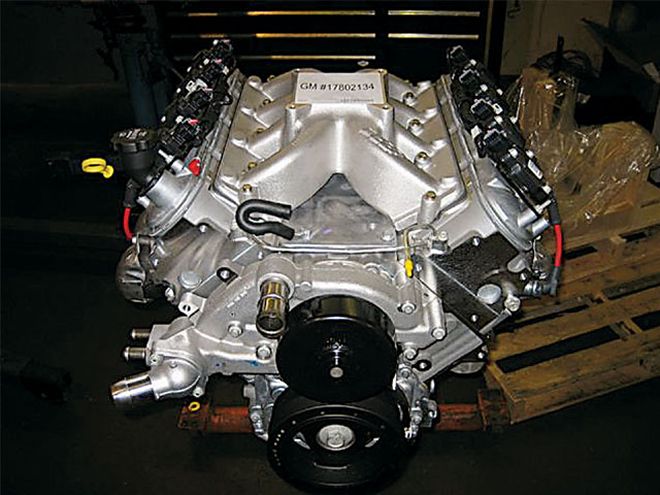
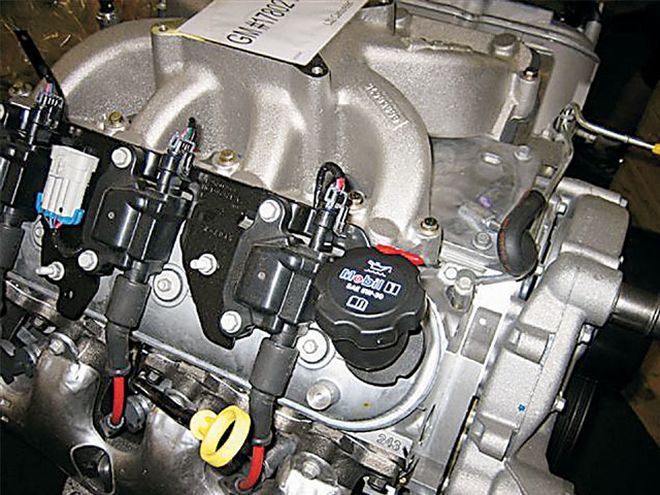
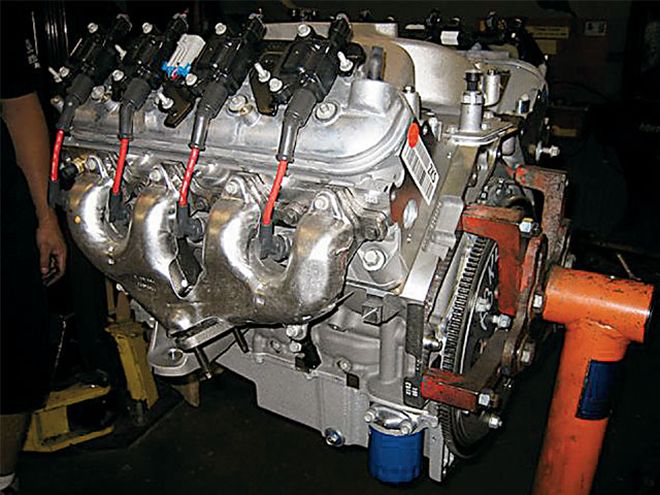
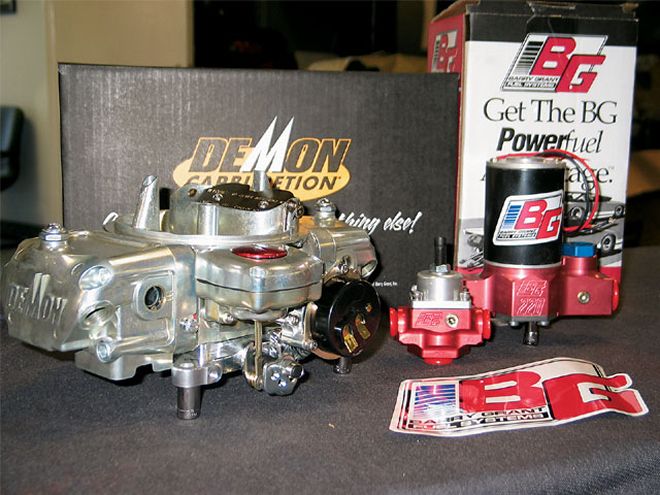
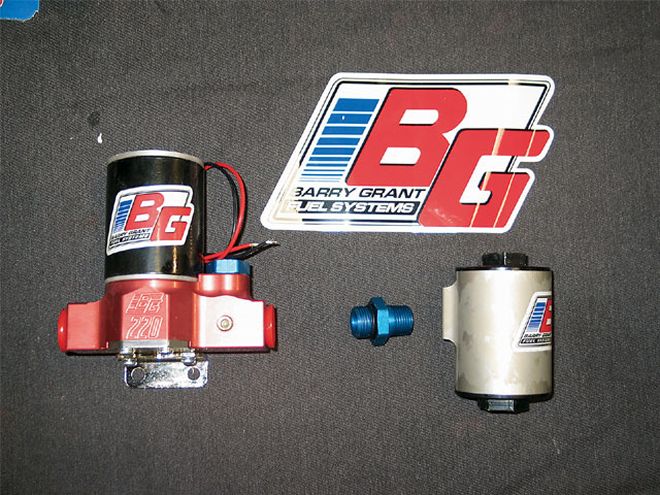
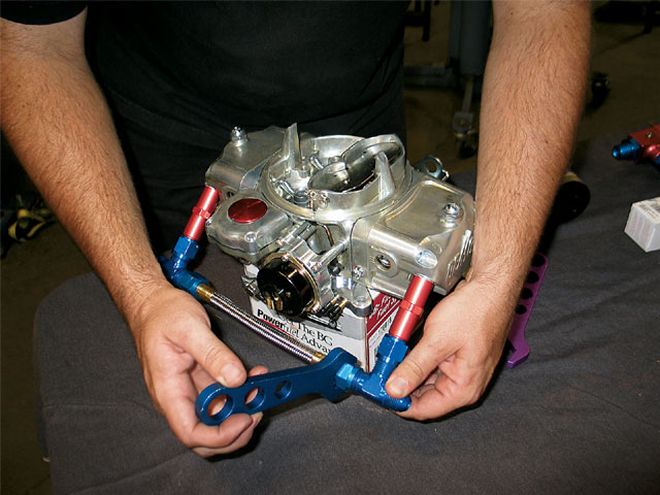
 | chevrolet Ls2 Engine dyno Tuning
Part Two: Dyno Tuning
| chevrolet Ls2 Engine dyno Tuning
Part Two: Dyno Tuning